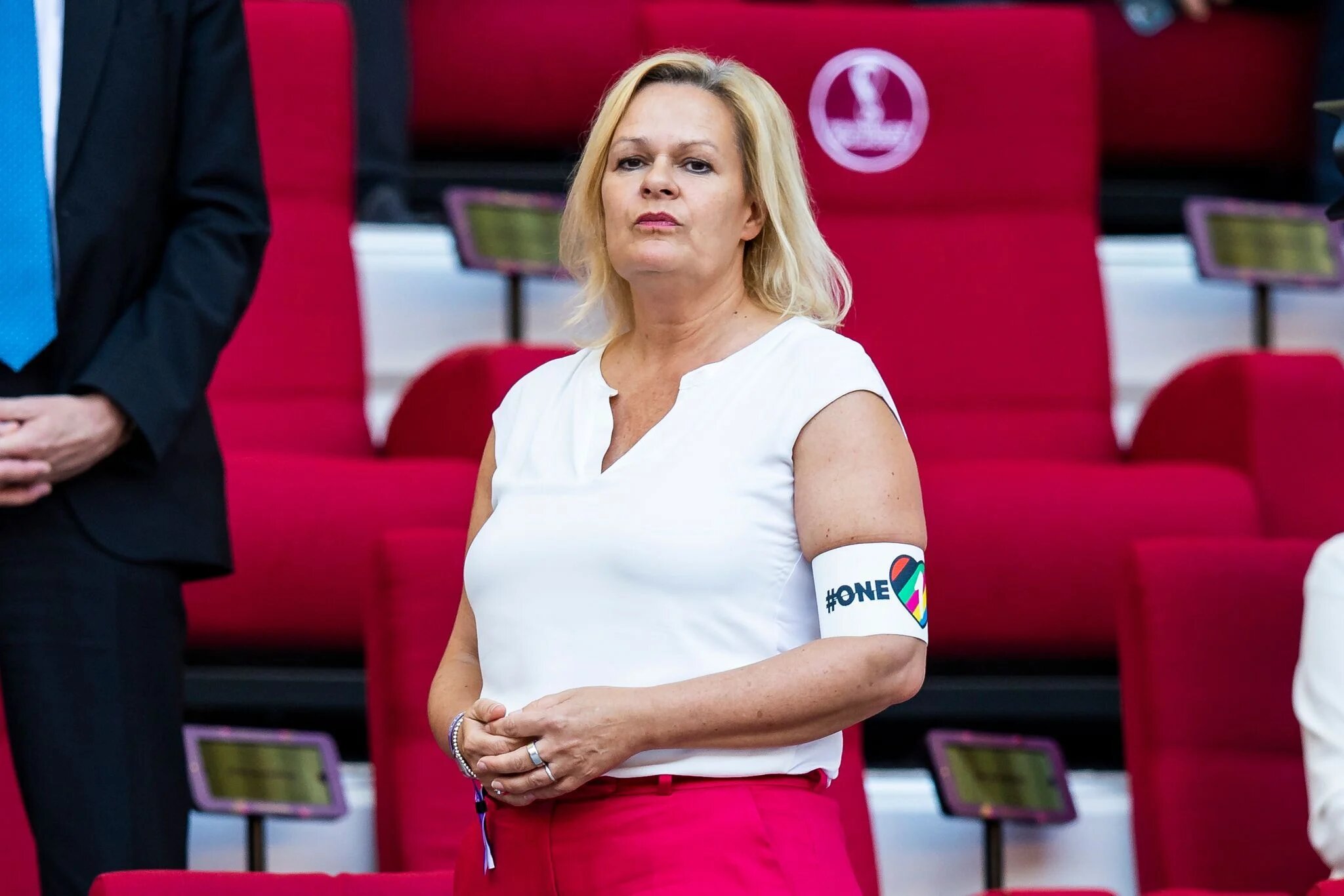Last month, many Germans expressed their opposition to mixing sports with politics during major events such as the World Cup.
Germany’s Interior Minister Nancy Faesar spoke out against criticism she faced for wearing the “One Love Armband” during the 2022 World Cup in Doha, saying the move was in protest of FIFA’s decision and not the Gulf state.
German media reported on Saturday that the remarks came during a reception with sports officials, and in response to comments made by Berlin’s newly-appointed national team’s chief Rudi Voller on the controversial move.
“I do not think that Rudi Voller should work on behalf of FIFA. This was an act of protest against FIFA, not against Qatar,” Faesar explained.
On Friday, Voller had addressed Faesar’s protest during his introduction as the German team’s manager, saying the minister “had to give up this or that”.
Faesar, who triggered a spat between Doha and Berlin weeks ahead of the World Cup last year, then went on to wear the armband during Germany’s face-off against Japan during the tournament.
That move came shortly after FIFA banned the armband – which supports the LGBTQ+ community – from being worn on the pitch. The football governing body had said that any alteration to the players’ uniform required its pre-approval.
Commenting on her decision to show up with the armband, Faesar said that it was “important” for her to take a stance, adding that she got the armband from the German Federation.
During the same match, the German team made global headlines after launching a mouth-covering protest ahead of their debut at the tournament.
Notably, 46% of Germans who were surveyed by YouGov on behalf of Berlin’s news agency said sports and politics should be divided during major events.on
Faesar’s protest at the time came amid a wave of western criticism over Qatar’s hosting of the World Cup, which saw intensified critical coverage over the Gulf state.
Much of the criticism was centred on Qatar’s alleged abuse of migrant workers and its stance on the LGBTQ+ community.
However, Qatar repeatedly stressed that it would welcome all visitors. As the tournament kicked off, it became widely described as the best and safest World Cup in FIFA history.
Qatari authorities responded to widespread migrant rights criticism over the years by introducing major reform, most notably the dismantling of the controversial kafala, or sponsorship, system.
However, officials in Doha said this was widely overlooked by western media and denounced the “unprecedented” attacks on Qatar has fueled by racism against the first ever Arab and Muslim nation to host the tournament.







